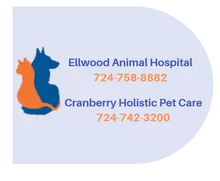If you’ve ever considered a veterinary-related career but don't want to spend eight years in college, there’s a challenging position that offers on-the-job training to the right candidates. Veterinary reception team members play a vital role in helping people and animals and protecting public health.
The job is far from boring, and though most of the calls are related to scheduling well and sick patient visits, we never know which calls will offer comic relief in the form of questions like these we have received:
- Do cats enjoy sex?
- How can you tell if your hamster is breathing?
- Do you guys do "fetal" tests for worms (yes, someone actually thought that the word was fetal, rather than fecal)?
- I think my bird’s foot just fell off because I can’t find it anywhere.
- How much does it cost to get a pet "spaded" (we know the word is spayed, but many people think it is "spade", which is actually a type of shovel or the name of a suit of cards)?
- My neighbor's dog keeps coming into my yard, and I want to know if I can sue them.
- I want to talk to the doctor right now because I don't want to bring my pet in for an appointment, unless she says I need to come in.
- My pet has been vomiting all day, and she can barely stand. Can I schedule an appointment for next week?
Clients calling into a veterinarian’s office will get ideal reception support by providing this info:
- Name, phone number and last visit date.
- Pet's name, age, health condition, including duration of symptoms.
- When scheduling, give staff your available days and times.
- When calling, remember that the receptionist is not a veterinarian; do not expect medical opinions or advice over the phone.
- The veterinarian cannot legally diagnose over the phone; schedule an exam for advice.
Receptionists have a challenging job considering numbers/varieties of inquiries and handling check-in/checkout procedures. Still, the work is rewarding as the primary contact that touches many lives. From determining urgency of scheduling to seeing new pets bond with families and bonding with pets and their people, this is a much-appreciated service career. Most receptionists are trained on the job, with a 90-day training period. In reality, the training period is much longer. After 10 to 15 years on the job, our receptionists say the learning is lifelong.
My vet reception experiences started in high school. The first call I took was from an Amish client about a "downer cow." I thought I had all the necessary information until I learned that there were four clients with the same name, on the same road. There was no phone to call back, so the vet spent an hour driving between farms in search of the cow. Once I learned about the community and procedures, scheduling become easier.
The things I enjoyed most were:
- Opportunities to learn about medicine and many types of animals.
- The variety of cases made for interesting days that flew by.
- The many grateful owners.
- Seeing animals go from injured/ill to healthy.
On the downside, I found it impossible to get caught up at work. And no matter how early I arrived, there were clients waiting at the front door. We frequently worked after hours. And no matter how well I explained home care to clients, some would call back with questions, which made me wonder whether I had imagined talking to them.
Though every job has its pros and cons, one of the best things about this career is that people with strong desire can become part of a veterinary team without attending lengthy training or special programs. Requirements for the job include being able to communicate well with people on the phone and in person, love for animals, basic office skills and attention to detail. We hire for an upbeat attitude and willingness to learn.
Because many veterinary personnel are young women in child-bearing years, veterinarians commonly hire staff replacements for maternity leave or child rearing. Many offices have both part-time and full-time opportunities. Individuals who always dreamt of being a veterinarian can get the thrill of helping animals and working with fantastic teams. If you have interest in the field, consider taking your skills to the front desk. A new career can start with a simple question at the local vet’s office: "Are you hiring?"
